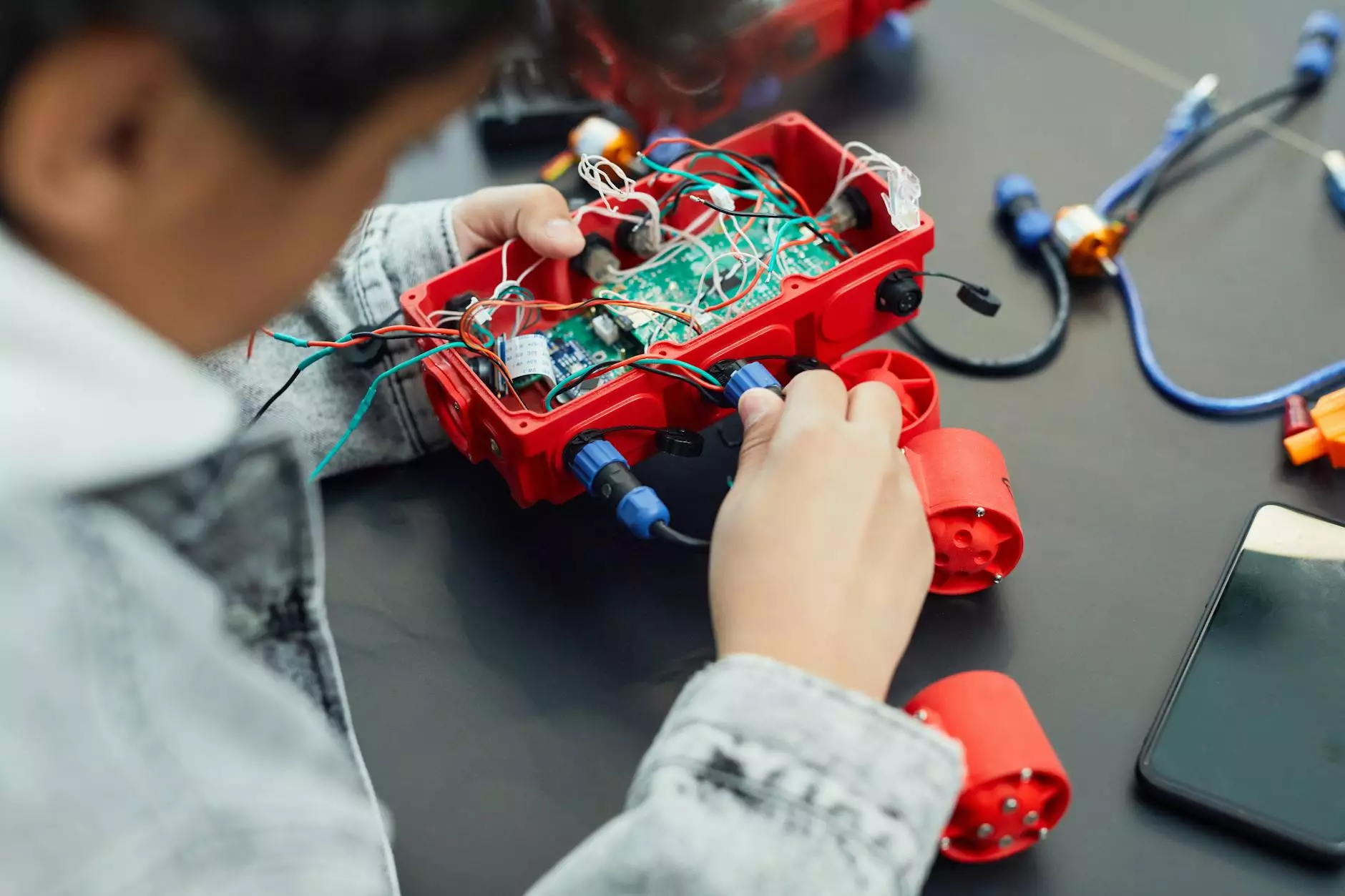Understanding Car Sensor Systems: The Backbone of Modern Automotive Safety

The automotive industry has undergone significant transformations over the past few decades, evolving to incorporate advanced technologies aimed at enhancing vehicle safety, efficiency, and overall performance. One of the core innovations that have driven this progress is the advent of the car sensor system. This article delves deeply into the various facets of car sensor systems, explaining their operation, benefits, and the future impact they will likely have on vehicle technology and safety standards.
What is a Car Sensor System?
A car sensor system refers to a collection of electronic devices integrated into a vehicle to monitor conditions and provide crucial data to the driver and the vehicle's onboard computer. These sensors are pivotal, as they help in making real-time decisions that enhance driving safety and vehicle performance. Sensors can detect a range of conditions, from vehicle speed and engine performance to environmental factors like temperature and humidity.
The Evolution of Car Sensor Systems
Car sensor systems have significantly evolved over the years. Here's a brief overview of this evolution:
- Early Sensors: Started with basic systems like oil pressure sensors and engine temperature gauges.
- ABS Sensors: Anti-lock braking systems introduced sensors that helped prevent wheel lock-up during braking.
- Modern Innovations: Incorporation of radar and camera systems that assist in adaptive cruise control, lane-keeping, and parking assistance technologies.
Key Components of a Car Sensor System
To fully understand how a car sensor system works, it is essential to know its key components. These components include:
1. Accelerometer Sensors
Accelerometers measure the rate of change of velocity. They are used in various applications, including stability control systems and airbag deployment. When a crash occurs, accelerometers detect the rapid deceleration and deploy airbags to protect the occupants.
2. Speed Sensors
Speed sensors monitor the vehicle's speed and relay this information to the engine control unit (ECU). This data is critical for functions such as cruise control and anti-lock braking systems (ABS).
3. Temperature Sensors
These sensors monitor essential temperatures, including coolant temperature and air intake temperature, which help in optimizing engine performance and efficiency.
4. Oxygen Sensors
Mounted in the exhaust system, oxygen sensors measure the amount of oxygen in the exhaust gases. This data is crucial for the ECU to adjust fuel mixture, ensuring efficient combustion and reducing emissions.
5. Proximity Sensors
Typically found in parking assistance systems, proximity sensors detect obstacles around the vehicle, helping drivers avoid collisions while parking.
How Car Sensor Systems Enhance Safety
Safety is a top priority in the automotive industry, and car sensor systems play a significant role in enhancing vehicle safety through the following methods:
1. Collision Avoidance
Many modern vehicles come equipped with advanced collision avoidance systems that utilize a combination of radar, cameras, and sensors. These systems can detect potential collisions with vehicles, pedestrians, and even objects, providing alerts to the driver and, in some cases, autonomously applying brakes.
2. Lane Departure Warning Systems
Lane departure warning systems use cameras to monitor lane markings on the road. If the vehicle begins to drift without signaling a turn, the system alerts the driver to steer back into the lane, thus preventing unintentional lane changes.
3. Blind Spot Detection
Blind spot detection systems utilize sensors to monitor areas that are not visible to the driver. If another vehicle is detected in the blind spot while signaling to change lanes, an alert is provided, reducing the risk of accidents.
The Impact of Car Sensor Systems on Vehicle Reliability and Performance
Beyond safety, car sensor systems also contribute significantly to vehicle reliability and performance. Here’s how:
1. Enhanced Fuel Efficiency
Oxygen sensors and temperature sensors work together to optimize the air-fuel mixture in the engine, thus enhancing fuel efficiency. Accurate readings from these sensors ensure that the engine operates efficiently, avoiding excess fuel consumption.
2. Real-Time Diagnostics
Modern car sensor systems provide real-time diagnostics, alerting drivers to issues such as low tire pressure or engine problems. Timely notifications can prevent small issues from escalating into significant problems, thereby improving the vehicle's longevity.
3. Adaptive Control Systems
Systems such as adaptive cruise control utilize various sensors to adjust the vehicle's speed according to traffic conditions automatically. This not only enhances driving comfort but also improves overall vehicle efficiency by maintaining optimal speed.
The Future of Car Sensor Systems
The future of car sensor systems looks promising, with ongoing advancements aimed at increasing vehicle automation and safety. Some anticipated developments include:
1. Integration with Autonomous Vehicles
As the industry moves towards autonomous vehicles, car sensor systems will play a crucial role, allowing vehicles to navigate and make decisions without human intervention. This requires a sophisticated network of sensors that can process vast amounts of data in real-time.
2. Vehicle-to-Everything (V2X) Communication
V2X technology allows vehicles to communicate with each other and infrastructure. This will enhance situational awareness, enabling vehicles to respond to traffic signals, obstacles, and hazards more effectively.
3. Increased Personalization
With advancements in artificial intelligence, car sensor systems will be able to learn and adapt to individual driving habits, enhancing safety and efficiency tailored to each driver’s preferences.
Conclusion
The role of car sensor systems in modern vehicles cannot be overstated. They are essential for ensuring safety, enhancing performance, and paving the way for the future of automotive technology. With continuous advancements in sensor technology, we can expect vehicles to become increasingly intelligent, efficient, and safer for everyone on the road. As these technologies continue to develop, businesses like imautoparts.com are perfectly positioned to provide the latest auto parts and supplies that keep vehicles equipped with cutting-edge sensor technology. Embrace the change and recognize the pivotal role that car sensor systems play in shaping the automobile industry.









